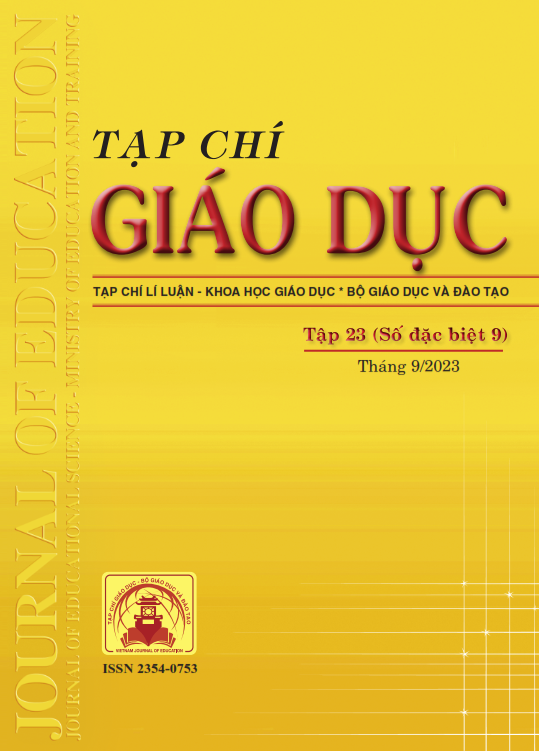Đánh giá chất lượng giáo án học phần “Anh văn 4” được soạn bởi trí tuệ nhân tạo tại Trường Đại học Công nghệ thông tin và Truyền thông - Đại học Thái Nguyên
Tóm tắt
Lesson plans are an important part of the teaching process. Writing lesson plans requires time, effort and creativity from teachers. A good lesson plan not only shows the ability of teachers but also reflects their enthusiasm for the profession. With the rapid development of science and technology, Artificial Intelligence has provided support in many fields, including education. Integrating artificial intelligence into lesson planning is a very positive way to support teachers. This study focuses on evaluating the effectiveness of the English 4 course syllabus prepared by Artificial Intelligence, conducted by fourteen lecturers at the University of Information and Communication Technology - Thai Nguyen University. The results show that Artificial Intelligence can assist teachers in preparing lessons, but the lesson plan prepared by AI still has many aspects that need to be improved and supplemented before it can be put into use.
Tài liệu tham khảo
Baker, R. S. (2017). Better Predictions, Better Actions: AI in Education. Journal of Learning Analytics, 4(2), 1-3.
Ellis, R. (2009). Task-based Language Teaching: Sorting out the misunderstandings. International Journal of Applied Linguistics, 19(3), 221-246.
Fredricks, J. A., Blumenfeld, P. C., & Paris, A. H. (2004). School engagement: Potential of the Concept, State of the Evidence. Review of Educational Research, 74(1), 59-109.
Gagne, R. M. (2014). The conditions of Learning: Theory into Practice. Holt, Rinehart and Winston.
Harmer, J. (2007). The practice of English Language Teaching (4th ed.). Pearson Education.
Khosravi, P., & Brusilovsky, P. (2017). Intelligent support for lesson planning. International Journal of Artificial Intelligence in Education, 27(2), 418-449.
Makri, A., & Pappas, I. (2020). The Role of AI in Enhancing the Role of the Human Teacher. Journal of Educational Technology Development and Exchange, 3(2), 1-12.
Marzano, R. J., & Kendall, J. S. (2017). The New Taxonomy of Educational Objectives. Corwin Press.
Pappas, I., Makri, A., & Li, Y. (2019). Human-AI Interaction in Education. Journal of Educational Technology Development and Exchange, 2(1), 1-12.
Ramli, R., Shahrill, M., & Goh, W. L. (2021). Towards AI-assisted Lesson Planning in a bBended Learning environment. International Journal of Emerging Technologies in Learning, 16(8), 223-242.
Richards, J. C., & Bohlke, D. (2011). Creating effective language lessons. Cambridge University Press.
Scrivener, J. (2011). Learning teaching: The Essential Guide to English Language Teaching. Macmillan Education.
Stronge, J. H. (2007). Qualities of Effective Teachers (2nd ed.). Alexandria, VA: Association for Supervision and Curriculum Development.
Đã Xuất bản
Cách trích dẫn
Số
Chuyên mục
Giấy phép
Bản quyền (c) 2023 Tạp chí Giáo dục

Tác phẩm này được cấp phép theo Ghi nhận tác giả của Creative Commons Giấy phép quốc tế 4.0 .












